By Mark S. Longo
In many ways, Flavius Aetius personified the tumultuous changes that rocked the Western Roman Empire during its final years. As Rome faded into the twilight of nations, Aetius’s military and political acumen were all that stood between the Eternal City and the barbarian hordes. His stunning victory over the Huns at the Battle of Chalons is enough to secure his legacy among the pantheon of legendary Roman commanders. However, Aetius was far more than a military leader. He was also a ruthless political operator whose cold-blooded pursuit of power changed the course of world history.
It is one of history’s great ironies that the man known as the “last of the Romans” was himself a barbarian. His father was a Scythian soldier who rose to the rank of magister equitum (master of horse) in the Roman army, his mother was a noblewoman of Italian descent. Aetius’s heritage made him uniquely suited to deal with the challenges facing Rome at the dawn of the fifth century. From almost the moment he could walk, Aetius was schooled in the ways of war and politics. As a young boy, he was sent as a hostage to the camp of the Visigoth king Alaric. His time among the Visigoths was well spent perfecting his riding skills and learning how to fight from horseback. He also became familiar with the barbarians’ tactics, knowledge that would serve him well in later years.
The Count of Africa
After returning from the Visigoths, Aetius soon found himself a political hostage once more. This time he was sent to the court of the Hun king Rugila. His time with the Huns was the formative experience of his life. He learned Hun tactics firsthand and became friends with Rugila’s nephew, a young boy named Attila. The two men’s fates, as well as the fates of their respective empires, were locked together permanently in their youth.
Soon after his return from the Huns, Aetius was caught up in the savage internal politics of the Roman Empire. His father had parlayed his rank of magister equitum into the title of Count of Africa. This elevated Aetius’s own standing within the empire and opened new political possibilities for him. It also made him new enemies. During his time as a hostage, Aetius had established relationships with the leaders of both the Huns and the Visigoths, and his contacts within the barbarian world made him a valuable resource. Many influential Romans sought his advice on how to deal with the barbarians. They also came to him when they needed barbarian muscle to further their political careers, a need that brought him to the attention of Emperor Joannes in 423 ad.
Joannes had seized power in a bloodless coup after the death of Emperor Honorius. However, in order to hold onto the throne, he needed an army to defeat the supporters of Valentinian III. Joannes knew of Aetius’s friendship with Rugila and sent the ambitious young man to raise an army among the Huns. Aetius accomplished his mission and marched into Gaul at the head of a large Hun force. Unfortunately, he arrived too late to save the emperor. Joannes already had been defeated by an army sent by Eastern Emperor Theodosius II. After Joannes’s defeat, six-year-old Valentinian III was crowned emperor of the Western Roman Empire. Since he was too young to rule, Valentinian’s domineering and ruthless mother, Galla Placidia, took over the imperial duties.
Divide and Conquer
The defeat of Joannes left Aetius in an unusual position. By taking up arms against the new emperor, he had committed treason. On the other hand, the Hun army under his command gave him a great deal of leverage. Afraid that Aetius would use his Hun army to unseat Valentinian, Placidia offered him a truce. If he disbanded his army, she would drop all treason charges against him and give him the title magister militum per Gallias (master of soldiers in Gaul). She would also give him enough gold to placate the Huns and convince them to return home. Realizing that his only other choice was open war with Rome, Aetius agreed to her terms. He was still a young man, but he was well on his way to becoming a dominant force in the empire.
Although his political standing had improved, Aetius still had two major hurdles in his path to ultimate power. The first hurdle was Placidia herself. She never forgave him for supporting Joannes, and she distrusted his close relationship with the Huns. The second hurdle was a rival military commander, Bonifacius, who had earned the undying gratitude of Placidia by supporting Valentinian in the struggle against Joannes. As long as Bonifacius remained in Placidia’s good graces, Aetius’s path to advancement was blocked.

In return for Bonifacius’s support, Placidia rewarded him with the governorship of Rome’s African territories. This was a prestigious assignment, and Bonifacius immediately left Rome to attend to his new position. With Bonifacius in Africa, Placidia was deprived of her closest friend and adviser. Sensing an opportunity, Aetius struck. His plan was relatively simple. He spread a rumor that Bonifacius was planning to use his newfound authority to rebel against Valentinian. Placidia became alarmed and recalled Bonifacius to Rome, but Aetius was one step ahead of her. He had already sent a letter to Bonifacius warning him that Placidia suspected him of treachery and was planning to summon him back to Rome to assassinate him. His suspicions raised, Bonifacius refused Placidia’s summons when it arrived. This confirmed Placidia’s fears, and she immediately began preparing for war. With one swift stroke, Aetius had set his two main opponents against each other.
Defeating Bonifacius
Bonifacius realized that his small African garrison was no match for the imperial legions, and he began looking desperately for an ally. He finally found one in the Vandal king Gaiseric. With the full might of the Vandals behind him, Bonifacius felt he could withstand Placidia’s assault. The Vandals were currently occupying Spain, but Bonifacius offered them land in Africa as part of the alliance. It was a strategic error that would have catastrophic results for Rome. The Vandals, having crossed the strait of Gibraltar in response to Bonifacius’s summons, established a firm foothold in North Africa. Bonifacius tried to drive them out, but he was defeated at Hippo (the siege of the city claimed the life of St. Augustine). Bonifacius eventually abandoned his troops and fled to Italy, where he was forgiven and restored to his former rank and title by Placidia.
But all was not forgiven between Bonifacius and Aetius. Soon after Bonifacius returned to Italy, he prepared to settle the score with his former friend. While Bonifacius had been fighting in North Africa, Aetius had been solidifying his power in Gaul. With the aid of his trusted Huns, he had defeated a Frankish invasion in 431 ad and put down a peasant revolt. Aetius was now the undisputed master of Gaul, but Bonifacius’s return threatened his status within the empire. Aetius marched into Italy to challenge his rival. Civil war had begun.
At Ariminum in 433 ad, Aetius emerged victorious after slaying Bonifacius in hand-to-hand combat. With Bonifacius out of the way, his only remaining rival was Placidia, whose position in Rome had weakened during his exile. With Valentinian approaching adulthood, her influence as the emperor’s regent was waning. Aetius stepped in and immediately filled the void as an adviser to the young emperor. The foolish and sheltered Valentinian was no match for the ruthless general. Although Aetius had enough support in the military to eliminate the boy emperor and his conniving mother, he chose to operate from behind the scenes. However, from that point on, Aetius was the true ruler of the Roman Empire.
Mastering the Roman Frontier
Although Aetius had finally seized power, holding onto it was another matter. Rome was beset by enemies on all sides. It would take a masterful combination of diplomacy and military strategy to keep the empire from collapsing. Aetius’s first act was to negotiate a treaty with the Vandal king Gaiseric that secured Rome’s grain supply in Africa and forced the Vandals to pay an annual tribute to Rome. This brilliant maneuver secured Rome’s southern border, allowing Aetius to devote his energy to stemming the barbarian tide that threatened to overwhelm Rome from the north.
Rome lacked the manpower to defend against incursions by the Visigoths, Armoricans, Burgundians, and the countless other tribes that threatened its northern border. Having defeated the Alans and Franks in earlier encounters, Aetius now enlisted them as confederates of the empire and used their cavalry to bolster his own forces. Experience had taught him that gold was Rome’s most powerful weapon against the barbarians, and in 436 Aetius bribed Rugila to unleash his Huns on the encroaching Burgundians. In the slaughter that resulted, the Burgundians were effectively eliminated as an independent people.
Aetius’s diplomatic and military victories were impressive. But for every enemy that he removed, another one quickly rose up to take his place. Shortly after the Burgundians were defeated, the Visigoths once again crossed the border into Gaul. Aetius had already defeated them once at Arles. To prevent further hostilities, he bribed the Visigoth king Theodoric to embark on a campaign against Rome’s enemies in Spain. This worked for several years, but Theodoric’s eyes remained fixed on Gaul. In 436, the Visigoths turned away from Spain and besieged the Roman city of Narbonne. Aetius’s forces relieved the city, but a war with the Visigoths was looming on the horizon. At the same time, the Vandals were stirring again in North Africa. Gaiseric, realizing that Aetius was distracted in Gaul, moved in on Rome’s remaining African territories. To make matters worse, Gaiseric’s son had recently married Theodoric’s daughter, signaling an end to the long years of conflict between the Vandals and the Visigoths. An alliance between the two tribes was Aetius’s worst fear—their combined forces could easily overwhelm Rome’s meager legions. The wily general became determined to prevent an alliance by any means necessary.
Aetius set his sights squarely on Gaiseric. The Vandal conquest of Africa posed the most immediate threat to the safety and security of the empire. After seizing Rome’s seaports in North Africa, Gaiseric’s forces had established themselves as a major naval power. The growing Vandal fleet posed a direct threat to Rome and the rest of the Mediterranean. Africa supplied the bulk of Rome’s grain along with a good deal of its trading income. Without the flow of gold from Africa, Aetius would be unable to continue his policy of bribing the barbarian tribes. The empire would truly be defenseless.
Fracturing the Barbarian Alliance

Unfortunately for Rome, Gaiseric was not interested in negotiating. With Aetius occupied in Gaul, he knew that he had a free hand to devour Roman territory. By 439, he had captured Carthage and most of North Africa. His fleet poured into the Mediterranean and invaded Sicily in 440. The Vandal invasion of Sicily sounded alarm bells throughout the Mediterranean world. Emperor Theodosius was so alarmed that he dispatched a massive armada to bring the Vandals to heel. Unfortunately for him, the Huns invaded the Eastern Roman Empire a short time later, forcing the armada to return to Constantinople before it could accomplish its objective.
With Vandal forces occupying Sicily and the Visigoths straining Roman defenses in Gaul, Aetius knew that he had to act quickly or the empire would be overrun. He decided to focus his efforts on the Vandals since they posed the most pressing threat. Aetius offered an alliance to Gaiseric if he would cease his hostilities toward Rome. To sweeten the deal, he also offered to betroth Valentinian’s daughter to Gaiseric’s son. It was a shrewd move. Aetius knew that Gaiseric’s son was already married to Theodoric’s daughter. If his ploy worked, it would cement an alliance with one of Rome’s greatest enemies while simultaneously driving a wedge between the Vandals and the Visigoths.
Aetius’s plan succeeded beyond his wildest dreams. Gaiseric’s forces had been stretched thin during his rapid conquest of North Africa and Sicily and he needed time to consolidate his gains without the threat of attack from Aetius or the Eastern Roman emperor. He also was enticed by the idea of marrying his son into the Roman royal line. The fact that his son was already married to Theodoric’s daughter mattered little to the Vandal king. He simply accused her of trying to poison him, cut off her nose and ears, and sent her back to Theodoric. The sight of his mutilated daughter infuriated the Visigoth king, and the two powerful barbarian nations teetered on the brink of war. Aetius’s last-ditch political maneuver had managed to save Rome for another day.
While he was busy protecting Rome’s future, Aetius was also hard at work securing his own. He strengthened his standing within the empire by betrothing his son Carpilio to Valentinian’s daughter Placidia, adding much-needed legitimacy to Aetius’s house and helping to erase the stigma of his earlier acts of treason. It was a political masterstroke.
Aetius next returned his attention to the barbarians at the gate. Throughout his rise to power, he had relied on the support of King Rugila of the Huns. When Rugila died in 433, shortly after helping Aetius destroy the Burgundians, command of the massive Hun horde fell to his nephews Bleda and Attila. The good relationship between Aetius and the Huns continued during the dual reign of Attila and Bleda. Aetius sent the new rulers several slaves to serve as their Latin secretaries, and Bleda responded by sending Aetius his beloved dwarf slave Zerco. These diplomatic gestures paid big dividends for Aetius. For the rest of the decade, the Huns continued to serve as his iron fist in Gaul.
Theodoric’s Foothold in the Roman Empire
Although Aetius had beaten back many threats to the empire’s northern borders, new ones continued to emerge. One of the most dangerous threats during this period was an uprising of the Bagaudae in 435 in northwestern Gaul. Roman sources dismissed them as little more than brigands and thieves, but the Bagaudae showed a remarkable level of sophistication and tenacity in their tactics. Under their leader, Tibatto, they managed to resist Aetius and his Huns for two years before they were finally defeated in 437. Even after their defeat, the Bagaudae remained a potent threat. Aetius was forced to settle his allies, the Alans, near Bagaudae territory to prevent another revolt.
Although he was busy dealing with the Burgundians and Bagaudae, Aetius had to always keep one eye on the Visigoths. Their armies in Spain remained a serious threat to the empire, and Theodoric repeatedly attempted to expand his domain into southwestern Gaul. In 439, the Visigoths made another incursion into Gaul. Aetius happened to be in Rome at the time, so he ordered Litorius to lead the Huns against the Visigoths. Unfortunately, Litorius did not possess Aetius’s skill at leading barbarian forces. In the ensuing battle at Toulouse, Litorius was killed and his army was virtually annihilated.
The defeat at Toulouse was a disaster for Rome. Aetius eventually managed to negotiate a truce with Theodoric, but the damage was done. The Visigoths established a permanent capital at Toulouse, giving them a firm foothold in Roman territory. The defeat also deprived Aetius of his valuable Hun army. Without them, he lacked the manpower to hold back the hordes of barbarians that threatened Gaul. He requested reinforcements from Attila and Bleda, but the Hun kings needed every soldier for their ongoing war with the Eastern Roman Empire. For the first time in years, Aetius was on his own.

Attila Threatens the Empire
Aetius spent the next six years desperately trying to hold the crumbling empire together. However, an event occurred in 445 that changed his plans and forever altered the course of western history. Attila, tired of sharing power, murdered his brother and became the sole ruler of the Huns. Aetius undoubtedly welcomed this change in leadership. He had befriended Attila during his time as a hostage in Rugila’s camp, and the two men had since collaborated on numerous military campaigns against Rome’s enemies. Aetius had even bestowed the honorary title of magister militum on Attila. This entitled the Hun king to a hefty salary and a regular supply of grain for his troops. Aetius now sent his son to Attila’s court as a hostage. He must have hoped that Attila’s reign would usher in a shining new era of cooperation between the Huns and the Romans. Unfortunately, things did not turn out as he hoped.
During the dual reign of Bleda and Attila, the Huns had waged a bloody war against the Eastern Roman Empire, plundering territory and exacting a hefty annual tribute from Emperor Theodosius. Both Aetius and Theodosius expected these raids to continue under Attila. But a few years after he seized power, Attila suddenly turned his attention toward the west. The reasons behind this abrupt change of strategy are still debated. Some historians have suggested that the lack of plunder in the east drove him toward the west. Anger at the Visigoths may be another reason for Attila’s prompt change of direction. The Visigoths had outraged the Hun king by refusing to pay tribute, and Gaiseric’s brutal mutilation of Theodoric’s daughter reignited the long-standing hatred between the two tribes.
Whatever his reasons, Attila abandoned the long-standing policy of coexistence with Rome shortly after he rose to power. Although he continued his diplomatic embassies with Aetius, he quietly began preparing for the climactic confrontation with his old ally. Attila’s first step was to disengage his forces from the protracted conflict with the Eastern Roman Empire. In 450, he negotiated the Treaty of Anatolius with Theodosius. With his rear secure, he was now free to focus all of his energy on the west. However, a direct invasion of Rome risked alienating the barbarian allies that formed the bulk Attila’s army. He needed a pretext for war and, as luck would have it, he got two.
Attila’s first pretext for war was the death of the Frankish king Clodion. After Clodion’s death, his two sons began fighting to claim his throne. The schism deepened when one son appealed to Aetius for aid and the other appealed to Attila. The wheels of war began to stir. However, the Frankish power struggle alone was not reason enough to start a war between Rome and the Huns. Another impetus was needed before hostilities could commence. As fate would have it, while the Frankish princes were vying for power, a strange drama was playing out inside the Roman royal family. This absurd soap opera would have devastating consequences for all of Rome.
Attila’s Rouse
Valentinian’s sister, Justa Grata Honoria, was an ambitious and beautiful woman. After being passed over for the Roman throne in favor of her brother, she began scheming to seize power for herself. After a string of scandalous affairs, she eventually seduced Eugenius, Valentinian’s royal chamberlain. The two hatched a plot to assassinate Valentinian and seize the throne, but it was discovered and Eugenius was executed. Honoria was exiled from Rome and sent to live in a convent in Constantinople. Unfortunately, even exile to a convent could not silence Honoria’s ambition. When no one in the Roman court came to her aid, Honoria wrote a letter to Attila begging him to free her. In return, she promised her hand in marriage and half of the Roman Empire as her dowry. Honoria’s letter gave Attila the pretense he had been waiting for. He immediately announced his intention to marry Honoria and demanded that Valentinian surrender his bride along with half of the Roman Empire. Valentinian naturally refused, and the final conflict between Rome and the Huns began.
Attila invaded Gaul in 451 ad. It is hard to imagine what raced through Aetius’s mind when he learned that his former ally was advancing through Gaul at the head of an invasion force. Whatever his initial response, it was tempered by the Huns’ deceptive diplomacy. While Attila told his allies that he was marching to rescue Honoria, he told Aetius that his target was the Visigoth capital of Toulouse. At the same time, he sent envoys to Theodoric insisting that his ultimate target was Rome. It was an elaborate shell game designed to keep his enemies off balance. Had it not been for Aetius, the ruse probably would have worked.
After he got over his initial surprise, Aetius quickly realized that Italy was Attila’s target. He knew that the handful of legions and confederates guarding the border were no match for the full might of the Hun Empire. Reluctantly, Aetius swallowed his pride and sent envoys to the Visigoth king. The fact that he could put aside his intense hatred of Theodoric is a good example of Aetius’s quicksilver ability to adapt to shifting political realities. Like Caesar and Scipio Africanus before him, he recognized that victory required more than just tactics and logistics—it also required a thorough understanding of the political environment. Once Attila was finished with Rome, he would undoubtedly move against the Goths. Aetius used that fear, along with rumors of a possible alliance between Attila and Gaiseric, to persuade Theodoric to ally with him against the Huns.
The Battle of Chalons
Aetius linked up with Theodoric in early summer. Their combined armies quickly set out toward Orleans to intercept Attila. They caught Attila’s advance forces inside the city and, after a bloody skirmish, drove away the Huns. Aetius pursued swiftly, and the two armies came together at Chalons, in central Gaul, on June 20, 451. A great famine gripped Italy at the time of the battle, making it difficult to gather sufficient manpower inside Rome, and the bulk of Aetius’s army consisted of Alans, Burgundians, Franks, and other barbarian confederates, along with Theodoric’s Visigoths. On the other side of the battlefield, Attila found himself in the same predicament as his former ally. Although the core of his army was made up of Huns, he also commanded Gepids, Ostrogoths, and a number of other Germanic tribes.

The battle between the two armies was fierce and bloody. Aetius’s men took up defensive positions on a small hill overlooking a broad plain and repeatedly repulsed Hun attempts to drive them off. As the day wore on, the battle degenerated into a brutal close-quarters contest and casualties mounted on both sides, including the Visigoth king Theodoric. It is not known whether he was trampled by his own men or killed by the enemy, but his death infuriated the Visigoths. They attacked with renewed vigor and forced the Huns to retreat. Attila’s men took up defensive positions behind their war wagons, and after repulsing several Visigoth assaults, the battle became a bloody stalemate.
At this point, Aetius made the most fateful and controversial decision of his career. His strategy up until that point had been a success. Attila’s forces had been driven from the field and they were trapped inside their camp. For the first time in his life, the Hun king was on the verge of defeat. Instead of attacking Attila or surrounding his camp for a long siege, Aetius decided abruptly to end the battle. He met with Theodoric’s son Thorismund and convinced him to return home before one of his brothers could challenge his claim to the throne. Without the Visigoths, Aetius no longer had the manpower to defeat Attila. Both sides were forced to withdraw. It was a remarkable stroke of luck for Attila, and the beginning of the end for Rome.
Sparing Attila
Aetius’s decision to spare Attila is still hotly debated among historians. Why would a cunning and ruthless commander make a decision that endangered himself and the entire Roman Empire? The conventional wisdom is that he was influenced by his long history with the Huns. They had always been there for him whenever he needed help. In many ways, he was closer to the Huns than the Romans. Even though Attila had openly defied him, Aetius may have clung to the hope that he could restore ties with the Huns. The volatile nature of Roman politics made it prudent to have a powerful ally. The Huns were an enemy at the moment, but all that could change quickly. On the other hand, the Visigoths were an ally of necessity who undoubtedly would turn on Rome if given the chance. Given the two, the Huns were a safer long-term choice.
Aetius’s victory at Chalons cemented his standing as the savior of Rome, but his growing popularity began to anger his many enemies in the Roman court. Like many successful generals before him, Aetius’s success was ultimately his undoing. Placidia had passed along her distrust of Aetius to her son, Valentinian III. The emperor tolerated Aetius’s continued acts of defiance mainly out of fear of his close relationship with the Huns. Now that the Roman-Hun alliance was broken, Aetius was vulnerable to reprisals from inside the empire. With the emperor and rival generals determined to undermine him, Aetius was in no position to repel Attila’s second incursion into Roman territory in 452.
The Huns crossed the Alps that spring and laid waste to many towns in northern Italy. Despite the meager force at his disposal, Aetius continued to argue for military resistance against Attila. But Valentinian refused his advice and fled the capital, leaving Aetius behind to shadow Attila’s army and attempt to prevent widespread damage, an attempt that ultimately proved futile. In the end, famine, bribery, pestilence, and an invasion of Hun territory by the Eastern Emperor Marcian ultimately saved Rome. Attila withdrew his forces from Italy in late autumn. He vowed to return and finish the job the following year, but he never got the chance. The fearsome Hun king died from a humble nosebleed shortly after returning from his Italian campaign.
The Death of Aetius and the Fall of Rome
The death of Attila lifted a great weight from the shoulders of the Roman Empire. Its inhabitants were finally able to enjoy a brief period of peace. Aetius set about rebuilding the army that had been decimated by the bitter battles of the past two years. However, while the death of Attila brought peace to the empire, it also emboldened Aetius’s enemies within the empire. The most prominent of these enemies was Petronius Maximus, a former consul who had his eye on the imperial throne. He found a sympathetic ear in Heraclius, a eunuch and adviser to Valentinian. Both men were jealous of Aetius’s power, and they hatched a plot to rid the empire of the domineering general, convincing Valentinian that Aetius was planning to assassinate him and seize the throne. Their whispers fed Valentinian’s already strong distrust of the general, and he promptly summoned Aetius to a meeting in the imperial palace.
For a man who had risen to power on the strength of his own ruthless political instincts, Aetius did not suspect ulterior motives in the emperor’s summons. Perhaps he was unaware of the scheming of Maximus and Heraclius, or perhaps he was so dismissive of Valentinian that he thought him incapable of an elaborate conspiracy. In any event, he followed the rules of protocol and attended the meeting unarmed and without bodyguards. It was a fatal mistake. During the meeting, Valentinian drew a sword and stabbed Aetius to death. By murdering the only man who had been able to keep the barbarians at bay, he had sealed his own fate, along with the fate of the Western Roman Empire.
With their main rival dead, Maximus and Heraclius immediately turned on each other. Heraclius began whispering in the emperor’s ear that Maximus was plotting against him. But the emperor’s rash act had put him in a vulnerable position, and there was little he could do. By murdering a popular general, he had turned both the public and the military against him. With few supporters left, it was only a matter of time until Valentinian suffered the same fate as Aetius. When Maximus learned of Heraclius’s treachery, he dispatched assassins to murder both Heraclius and Valentinian. The assassinations took place on the Campus Martius in full view of Valentinian’s guards. Instead of rushing to stop the murder of their emperor, the guards merely watched as Valentinian was stabbed to death. In one of history’s greatest ironies, one of the assassins was a Hun who had sworn to avenge the death of Aetius. The Roman world had truly come full circle.
With Aetius dead and the emperor slain, the Western Roman Empire was a tempting target for foreign invaders. Maximus attempted to seize control of the empire, but his rule was short lived. A few months after he took the throne, a massive Vandal fleet descended upon Rome. Chaos engulfed the empire and Maximus was cut to pieces by his own guards. The Western Roman Empire lived on under barbarian domination for another 21 years until Germanic king Odoacer finally put an end to the farce in 476 ad.
What would have happened if Aetius had survived? Would the wily general have been able to repel the Vandal invasion? Would he have used his influence to put his son on the imperial throne, or perhaps even seized the throne for himself? Would the Western Roman Empire have survived, or was its fall inevitable? In the end, it is unknowable. Aetius, more than any other figure of the late Roman period, was a product of his age. Half-barbarian, half-Roman, he straddled the line between the old world and the new. Because of his unique upbringing, he had personal and political attachments on both sides of Rome’s borders. For much of his life, he defended the empire to further his own ambitions. Although he was cold-blooded in his pursuit of power, he ultimately needed Rome as much as she needed him. In an era of unprecedented danger, Aetius used all his considerable talents to keep the wolves from Rome’s door. If the empire had included more men like him, perhaps he would not have been “the last of the Romans.”

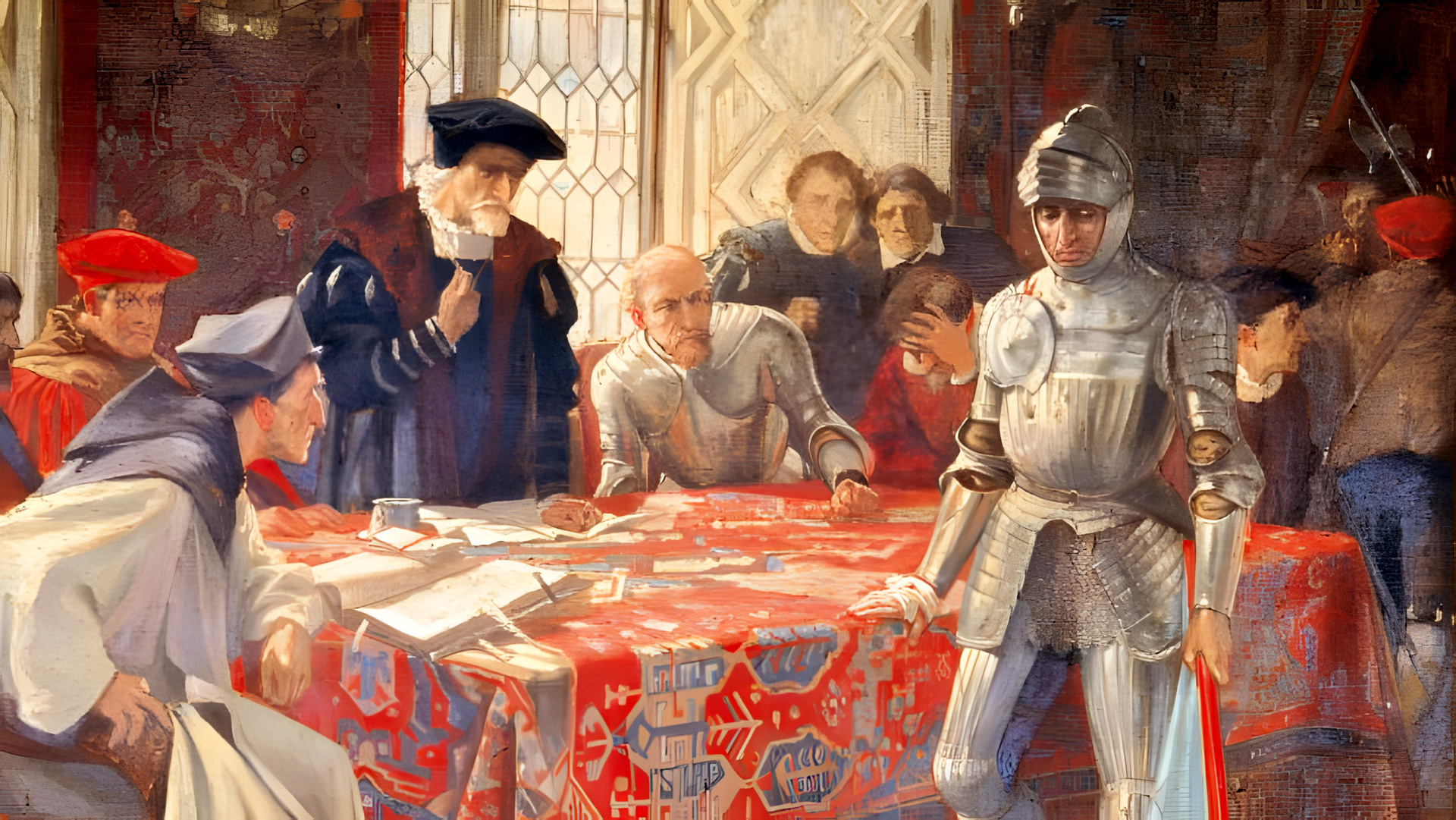
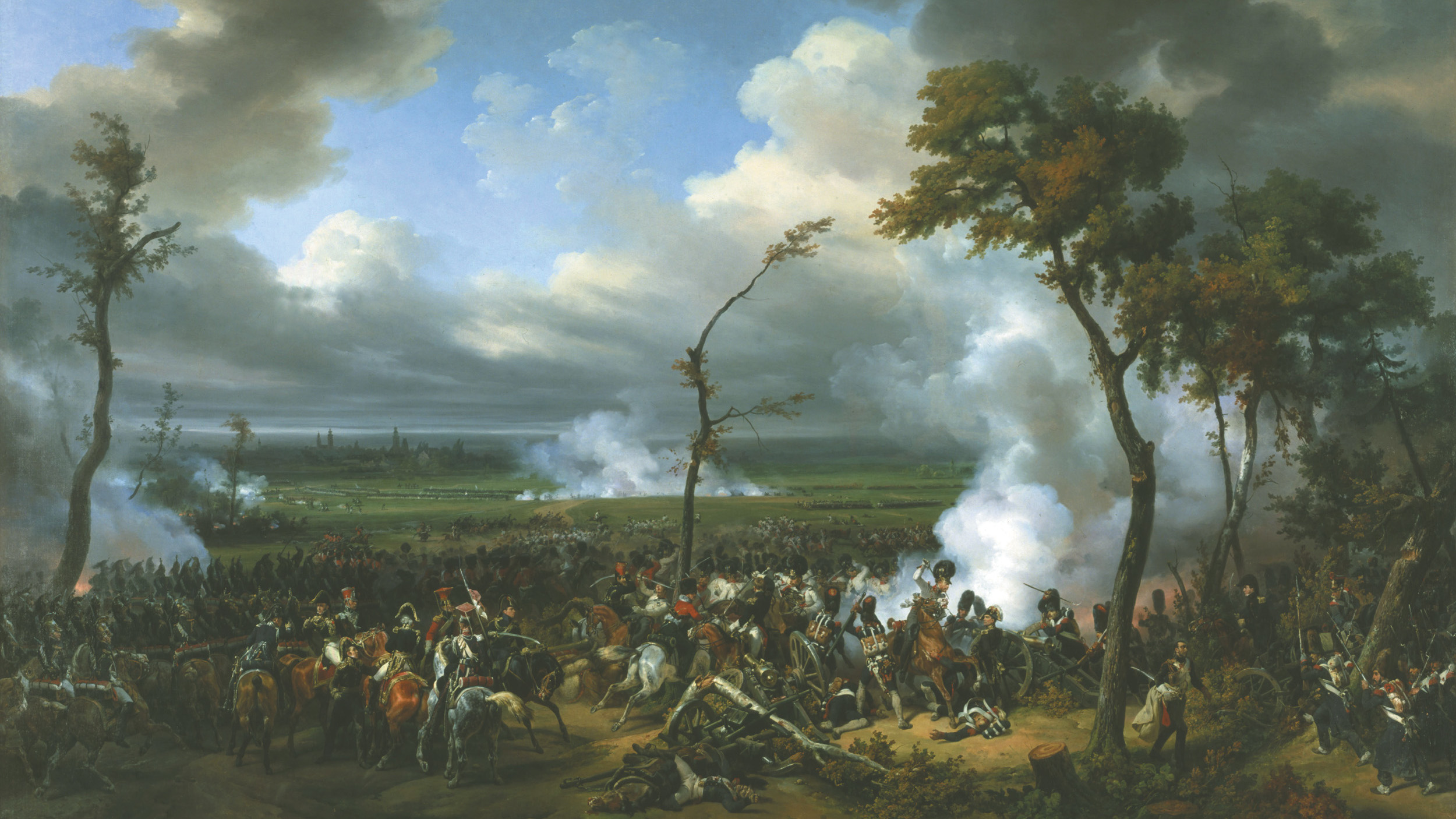
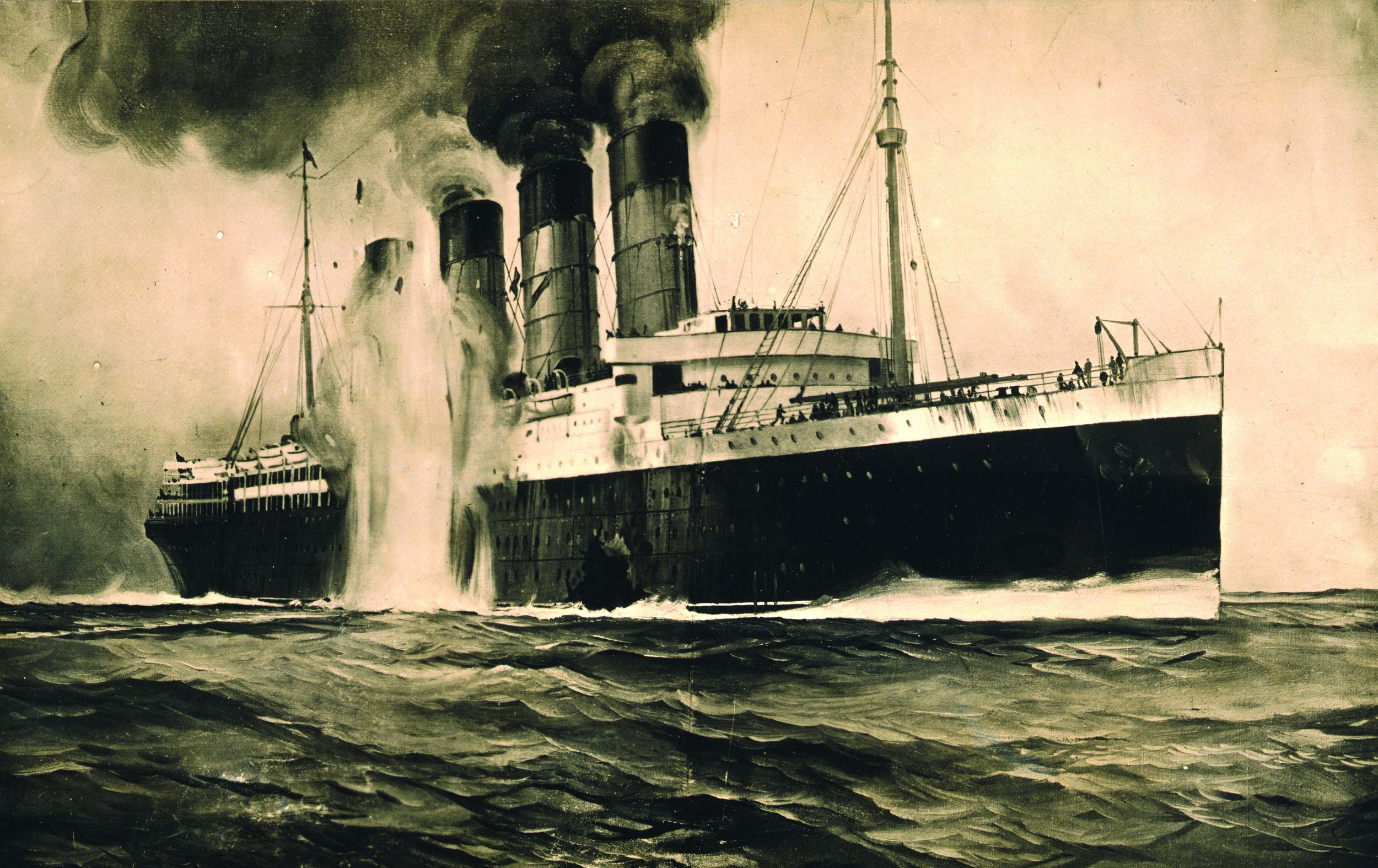
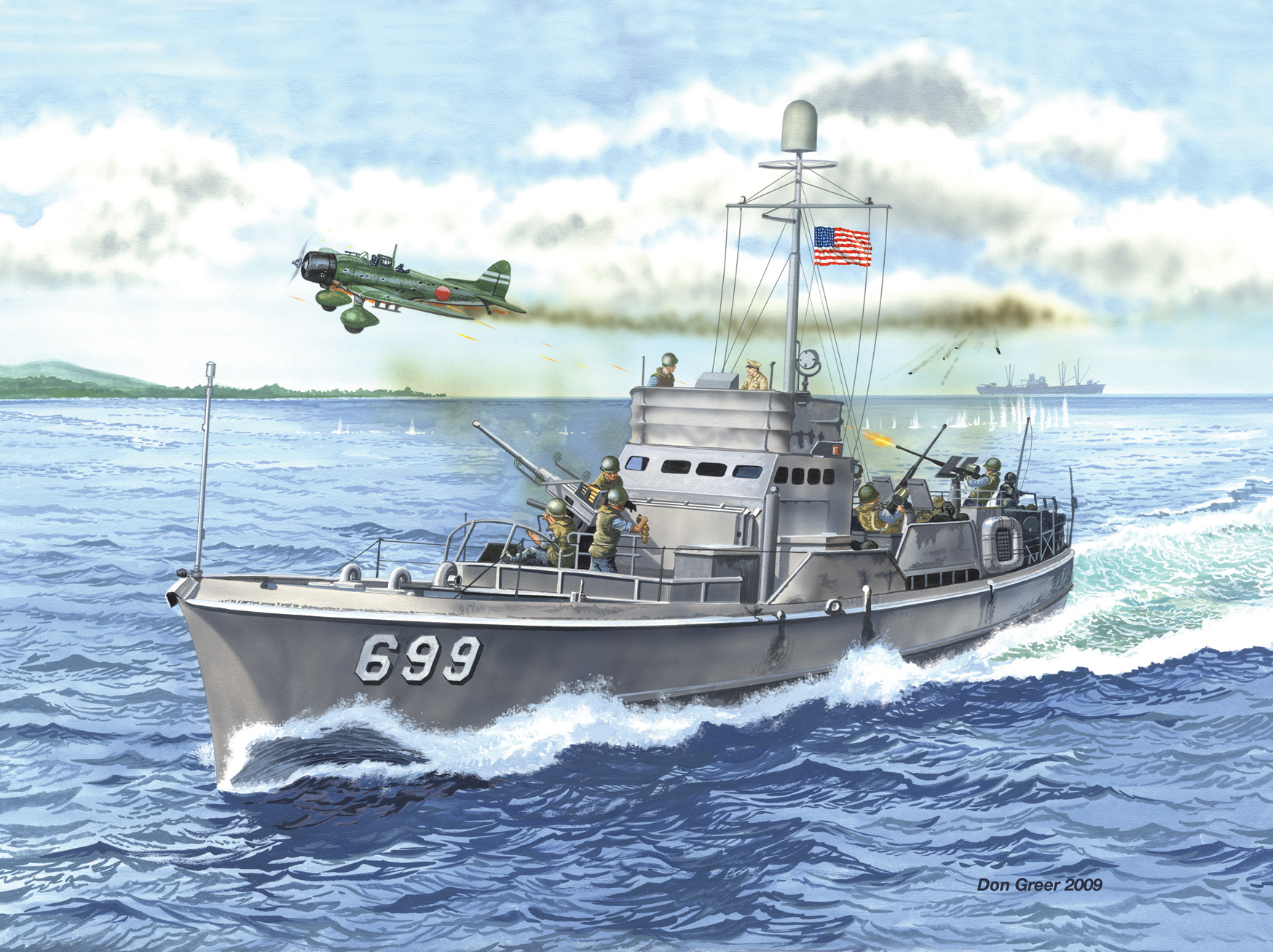

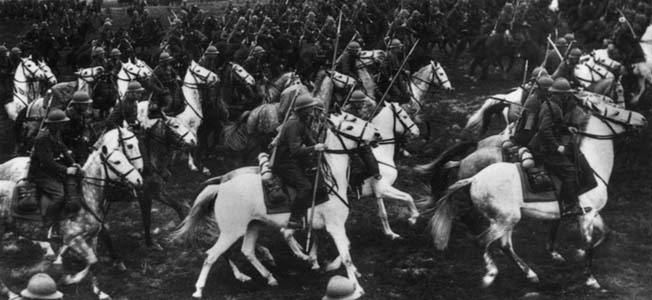
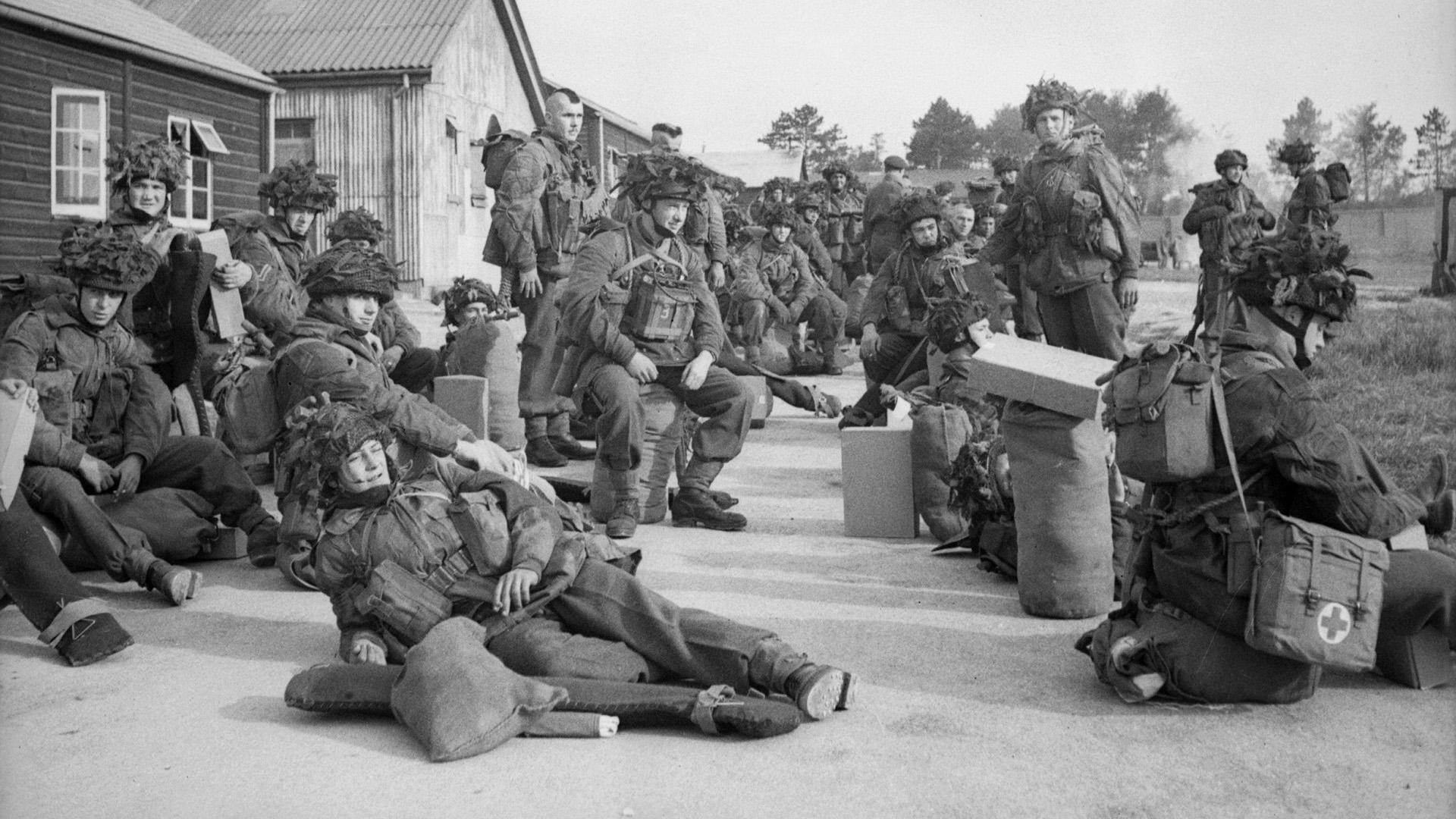
Join The Conversation
Comments
View All Comments